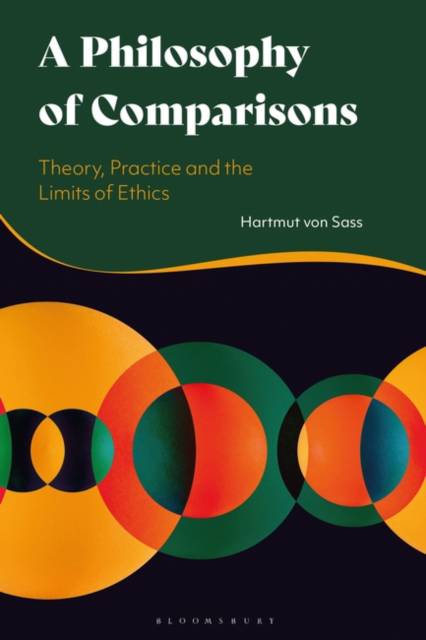
- Afhalen na 1 uur in een winkel met voorraad
- Gratis thuislevering in België vanaf € 30
- Ruim aanbod met 7 miljoen producten
- Afhalen na 1 uur in een winkel met voorraad
- Gratis thuislevering in België vanaf € 30
- Ruim aanbod met 7 miljoen producten
Zoeken
A Philosophy of Comparisons
Theory, Practice and the Limits of Ethics
Hartmut Von Sass
Paperback | Engels
€ 69,45
+ 138 punten
Uitvoering
Omschrijving
Comparing is one of the most essential practices, in our everyday life as well as in science and humanities. In this in-depth philosophical analysis of the structure, practice and ethics of comparative procedures, Hartmut von Sass expands on the significance of comparison.
Elucidating the ramified structure of comparing, von Sass suggests a typology of comparisons before introducing the notion of comparative injustice and the limits of comparisons. He elaborates on comparing as practice by relating comparing to three relative practices - orienting, describing, and expressing oneself - to unfold some of the most important chapters of what might be called comparativism. This approach allows von Sass to clarify the idea of the incomparable, distinguish between different versions of incomparability and shed light on important ethical aspects of comparisons today. Confronting the claim that we are living in an age of comparisons, his book is an important contribution to ideas surrounding all-encompassing measurements and scalability and their critique.Specificaties
Betrokkenen
- Auteur(s):
- Uitgeverij:
Inhoud
- Aantal bladzijden:
- 264
- Taal:
- Engels
Eigenschappen
- Productcode (EAN):
- 9781350185517
- Verschijningsdatum:
- 20/04/2023
- Uitvoering:
- Paperback
- Formaat:
- Trade paperback (VS)
- Afmetingen:
- 156 mm x 234 mm
- Gewicht:
- 371 g

Alleen bij Standaard Boekhandel
+ 138 punten op je klantenkaart van Standaard Boekhandel
Beoordelingen
We publiceren alleen reviews die voldoen aan de voorwaarden voor reviews. Bekijk onze voorwaarden voor reviews.







